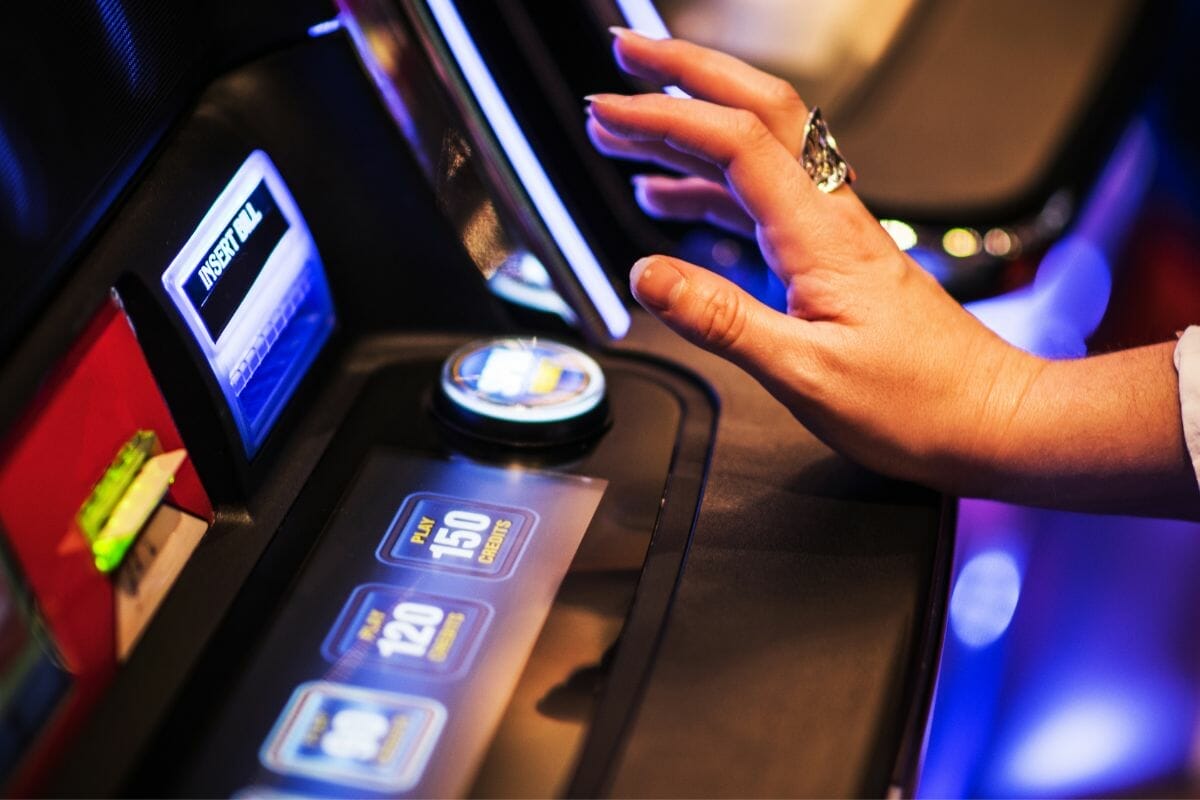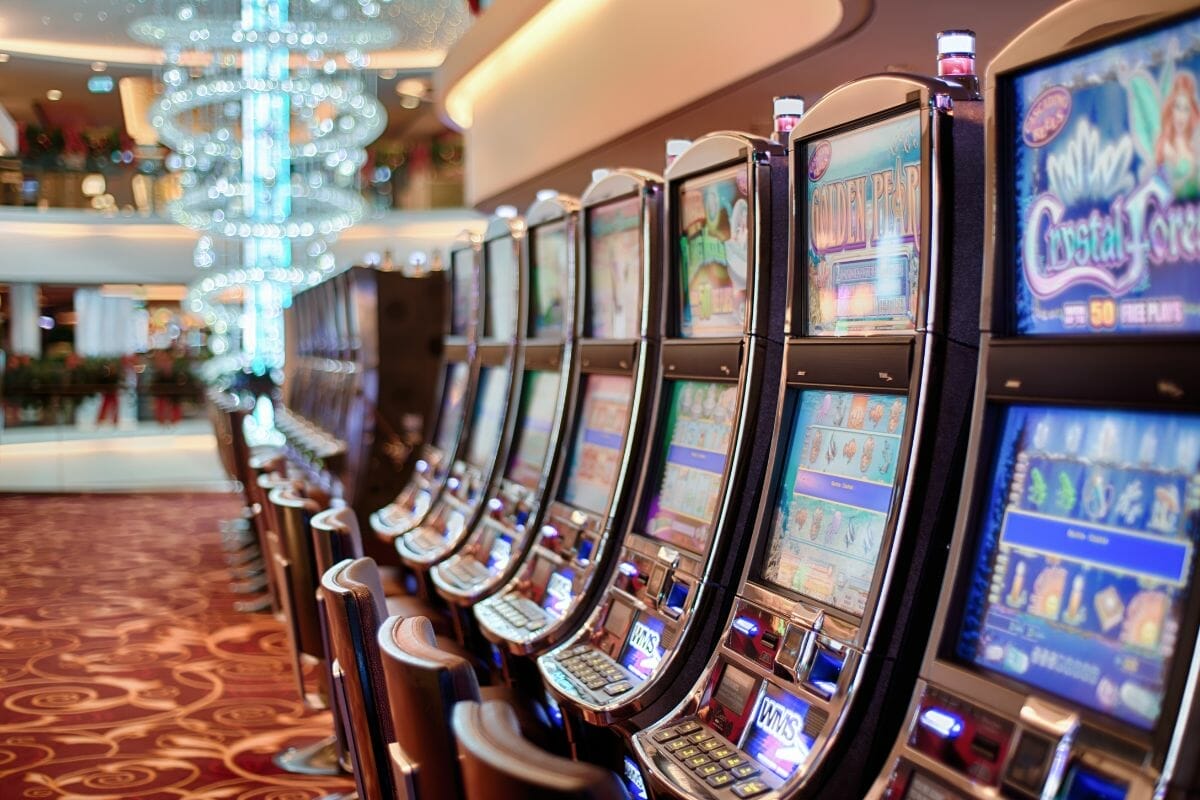Have you ever played a slot machine and blown your last $20 and wondered whether or not the machine was close to paying out? It’s all dependent on what is known as the payout rate, and this can vary depending on a number of different factors. .

So, if you want to learn more about slot machines and their payout rates, as well as examples of payout rates, then keep reading on (see also “What Is A Bonus Slot Machine?“), and we’ll provide you with all of the information you need to know!
How Do Casino Games Work?
In most casino games, the players bet money against the house, which is the casino itself. The house has an advantage in most games because the odds are in its favor.
This means that, over time, the house is likely to win more money than it loses.
To play a casino game, a player must first understand the rules of the game. They can then place a bet, which is typically a certain amount of money they are willing to wager on the outcome of the game.
After the bet is placed, the game begins and the players have the chance to win or lose money based on the game’s outcome.
Casino games are highly regulated to ensure fair play for all players. This means that the games are carefully designed and tested to ensure that the odds of winning are fair and that the games are not rigged in favor of the house.
Additionally, casinos are required to follow strict regulations to ensure that the money that is wagered on casino games is properly handled, and is not used for any illegal activity.
What Is A Slot Machine Payout Rate?
A slot machine payout rate, also known as the return to player (RTP) rate, is the percentage of money that a slot machine pays back to players over time.
For example, if a slot machine has a payout rate of 95%, it means that for every $100 that is wagered on the machine, the machine will pay out $95 on average over the long run.
Payout rates are important because they give players an idea of how much they can expect to win or lose when playing a particular slot machine (see also “Are There Slot Machine Strategies?“).
Payout rates are determined by the game’s developers and are based on a number of factors, including the complexity of the game, the number of reels and pay lines, and the potential for bonus features or jackpots.
In general, simple games with fewer reels and pay lines tend to have higher payout rates, while more complex games with multiple bonus features and progressive jackpots tend to have lower payout rates.
Payout rates are typically expressed as a percentage and can range from as low as 75% to as high as 99%. In general, slot machines with higher payout rates are considered more generous, while those with lower payout rates are considered less generous.
However, it’s important to keep in mind that payout rates are only an average, so a particular machine may pay out more or less than the stated rate in any given session.
How Are Payout Rates Regulated?

Gaming authorities regulate payout rates to ensure that they are fair and accurate. In most jurisdictions, slot machines must display their payout rates prominently (see also “Are Slot Machines Honest?“), so players can make informed decisions about which machines to play.
These authorities typically set minimum and maximum payout rates for slot machines, with the exact rates varying depending on the location and type of machine.
For example, in the state of Nevada in the United States, the minimum payout rate for slot machines is 75%, while the maximum payout rate is set at 100%.
This means that, on average, slot machines in Nevada must pay out at least 75% of the money that is wagered on them and cannot pay out more than 100%.
How To Maximize Your Returns
There are a few ways to maximize your returns at a casino, but it’s important to keep in mind that ultimately the house always has the advantage.
This means that no matter what strategies you use, there is always a chance that you will lose money.
With that being said, here are a few tips that may help you maximize your returns at a casino:
- Choose games with a low house edge: The house edge is the advantage that the casino has over the player in a particular game. Games with a low house edge, such as blackjack and video poker, give the player a better chance of winning.
- Take advantage of bonuses and promotions: Many casinos offer bonuses and promotions to attract new players and keep existing ones. These can include things like free play, free spins, and deposit bonuses. Be sure to read the terms and conditions carefully to make sure you understand the requirements and restrictions for each offer.
- Set a budget and stick to it: It’s easy to get carried away at a casino, especially when you’re on a winning streak. To avoid overspending, it’s important to set a budget for yourself and stick to it. Decide in advance how much money you are willing to spend, and don’t exceed that amount.
- Quit while you’re ahead: One of the most important pieces of advice for maximizing your returns at a casino is to quit while you’re ahead. If you’re having a good night and you’re up a significant amount of money, consider cashing out and calling it a night. The longer you stay at the casino, the more likely you are to lose some of your winnings.
These are just a few tips that may help you maximize your returns at a casino. Remember that gambling should always be done responsibly and for entertainment purposes only.
Conclusion
In summary, slot machine payout rates are a measure of the percentage of money that a machine pays back to players over time (see also “Best Payout Slots“).



